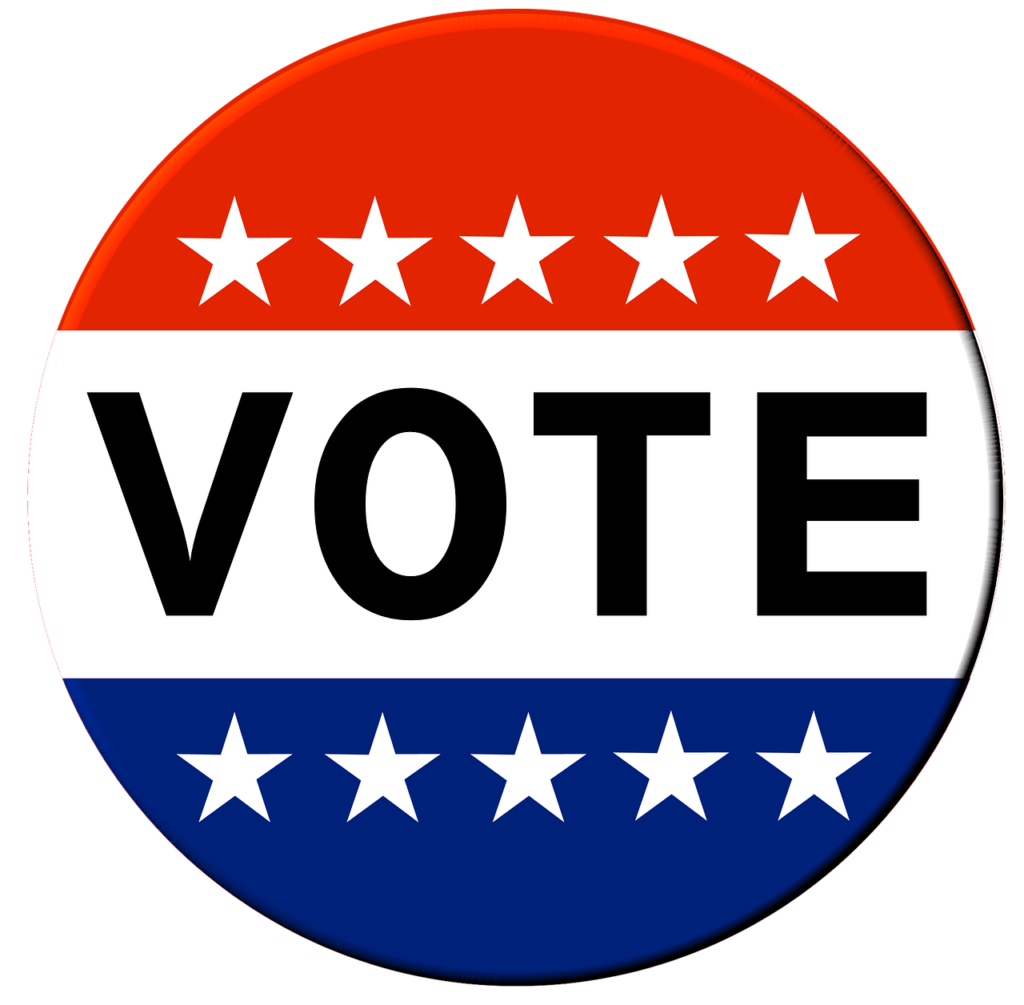English Words in the News: Election Edition Posted by Gary Locke on Oct 22, 2020 in News
Americans right now are thinking about the national election on November 3rd, and probably more than they would like to admit.
Because of COVID, many of us aren’t leaving home, so we have little choice but to pay attention to the races in our states and across the country. Television ads and news programs all want us to know that this is the most important election perhaps ever in our history. Thanks to this massive saturation in the media, our daily vocabulary is now filled with words and terminology that we rarely use except every two years. And if you aren’t familiar with what all these words mean, or you get them confused, I’m here to help.
Polls, Pols, and More Polls
Pronounced just like the word pole, like flagpole or barber’s pole, a poll can mean many things at election time. Keeping all the definitions straight can be difficult.
Poll – Noun
- The process of voting in an election.
- The location where the voting takes place.
- The period of time allowed to cast a vote in an election.
- The total number of votes recorded.
- The questioning of random voters before or after an election.
- The record of the answers given during that questioning.
Got all that? Because there’s more.
Poll – Verb
- Receiving and recording votes. This is a transitive verb.
- The act of casting a vote at a poll. This is an intransitive verb.
I know. This is an insane number of definitions for one word as it applies just to elections. And, yes, the word poll has other definitions completely unrelated to elections. Then there’s pol, pronounced the same way, which is a commonly accepted term for a politician.
Many Americans are being asked to take a poll about our favorite pol before we go to the polls to cast our poll. As odd as that sentence seems, it actually makes sense.
There are also Poll Workers or Election Officials. These people serve several important functions on Election Day.
- Monitor the voting process
- Check that voters are properly registered and that they receive one ballot each
- Certify that the election rules were legally observed
- Give the official vote tally or count
Ballot – A ballot is a card, or paper, on which the names of all candidates are listed. Some states use electronic voting machines that display the ballot. You cast your vote on a ballot.
Down-Ballot Races – In a national election, the top of the ballot lists the candidates for president of the United States, the highest office in the nation. But, there are other offices on a state and local government level being decided upon. These are called down-ballot candidates. Voters are selecting members of the United States House of Representatives, the U.S. Senate, state governor, state legislators, County Sheriff, District Attorney, town and municipal offices like Town Clerk and City Council members. It can be a long list of offices and candidates.
Absentee Ballot – Voters who cannot be present on Election Day may cast an absentee ballot. Dating back to the US Civil War in 1864, people serving in the military have been allowed to vote despite not being physically present. Absentee voters need to request a ballot. Voters may also need to provide an excuse for requesting a ballot. This year, COVID-19 concerns are considered a reasonable excuse.
Mail-In Ballot – Mail-in voting is a process in which a state sends ballots to its registered voters. While it works the same as Absentee voting, “all-mail” elections mean that every registered voter automatically gets a ballot sent to their registered address that they can either mail back or return in person, usually to their local town offices. This year, some states, like California and Washington, are conducting voting primarily by mail because of the concerns raised by the pandemic. Other states are sending mail-in ballots upon request but without requiring an excuse in writing for the request.
This year, we will likely see the largest number of votes ever cast in an election. But, believe me, we will all be happy to have the election behind us.
Well, except maybe for the people who make all those political advertisements.

Build vocabulary, practice pronunciation, and more with Transparent Language Online. Available anytime, anywhere, on any device.





Comments:
SamDave:
This is really informative.